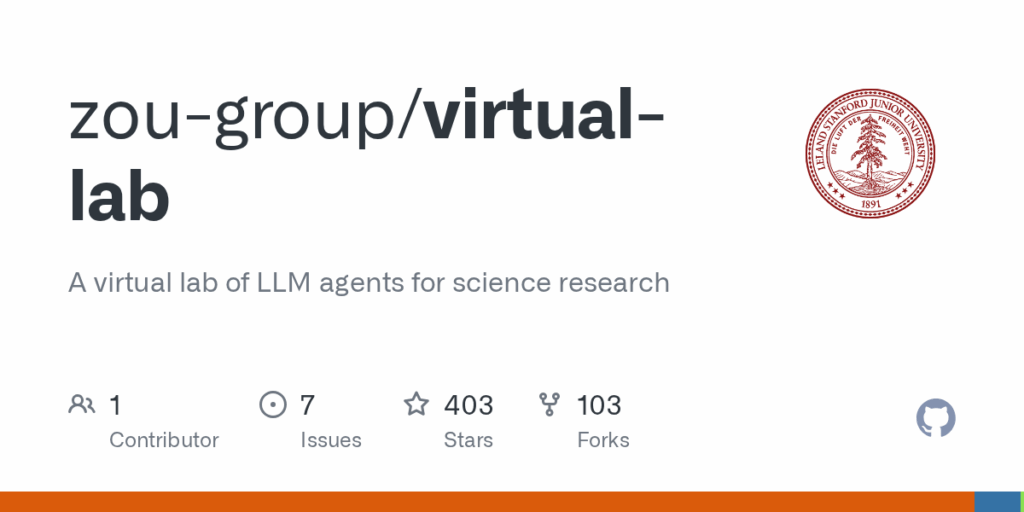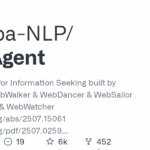virtual lab
Basic Information
The Virtual Lab repository provides a platform for AI-human collaboration in scientific research where a human researcher interacts with a team of large language model agents. It supports structured interactions via team meetings, in which multiple agents discuss a research agenda, and individual meetings between the researcher and a single agent to address specific tasks. The project demonstrates a real-world application to nanobody design for SARS-CoV-2 and includes a computational pipeline built from existing bioinformatics tools. The README points to an example notebook that shows how to create agents, run meetings, and execute the end-to-end workflow. The package is installable via pip and requires an OpenAI API key for its LLM backend.








